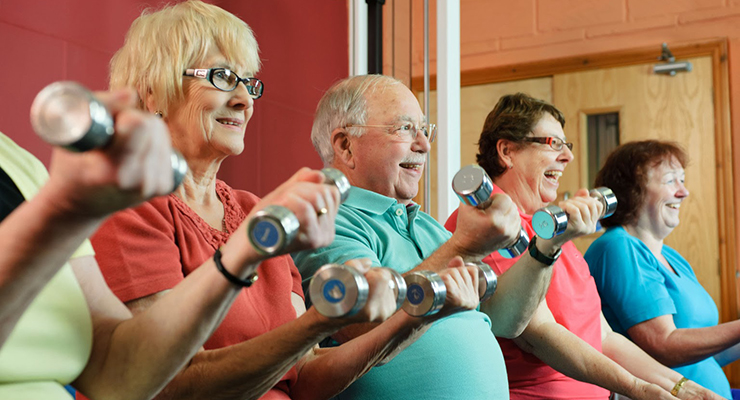Recent news (Blog)
What should the body mass index (BMI) be in senior adults?
- Hits: 2541
San José, Costa Rica. May, 2016.
 The body mass index (BMI) is the indicator that determines if we have the proper weight according to our size.
The body mass index (BMI) is the indicator that determines if we have the proper weight according to our size.
A good BMI should be between 18.5 and 24.9 to be considered normal. But, in senior adults, it varies so that it goes from 23.1 to 27.9.
Once you cross the 65 year-old line, a slightly higher body mass index may help protect you against thinning of the bones (osteoporosis) and fractures. Having a lower BMI increases, therefore, the possibilities of having bone issues.
A low BMI may be due to various factors, such as malnutrition caused by psychological problems (depression or memory disorders, for example). Also, senior adults may lose weight due to the loss of taste, the absence of some dental pieces or a bad absorption of nutrients. In addition, physical disorders caused by diseases such as cancer may lead to a very low BMI.
On the other hand, obesity increases cerebrovascular and cardiovascular diseases, diabetes and osteoarthrosis, as well as the loss of mobility.
However, in senior adults, unlike in young adults, overweight does not necessarily represent a risk factor to develop chronic-degenerative diseases. Therefore, if you are older than 65 and you have a BMI between 28 and 32, do not turn-on the alarm just yet, but it is always important to keep a balanced diet.
How to maintain a healthy BMI when you are a senior citizen?
As we all know, keeping a balanced diet and a healthy weight are essential factors that we must be careful with throughout our life.
In order to continue with this practice in senior adults, it is important to limit the intake of sodium (mainly from canned foods, processed foods, cold cuts or lunch meats and snacks), as well as of saturated fat and sugars (especially sodas, sweets, desserts and refined or processed cereals).
It is also important to focus on the consumption of beverages and foods rich in nutrients, such as skimmed or semi-skimmed dairy products, seafood, chicken and lean meats, eggs, vegetables and dry fruit and nuts. Vegetables (especially those with dark green leaves), fruits and wholegrain cereals (oatmeal, lentils, chick peas, peas, kidney beans, quinoa and wholegrain rice) cannot be absent in order to obtain more potassium, fiber, calcium and vitamin D.
Parallel to keeping a balanced diet, physical activity is vital to living a healthy life style; limit the time dedicated to sedentary behaviors, such as watching TV or spending hours in front of the computer.
In order to obtain further information, or to request an appointment in any of the medical specialties, you may contact the private hospital Clínica Bíblica at telephone no. 2522-1000, email citas@clinicabiblica.com or via chat at the website: clinicabiblica.com.

